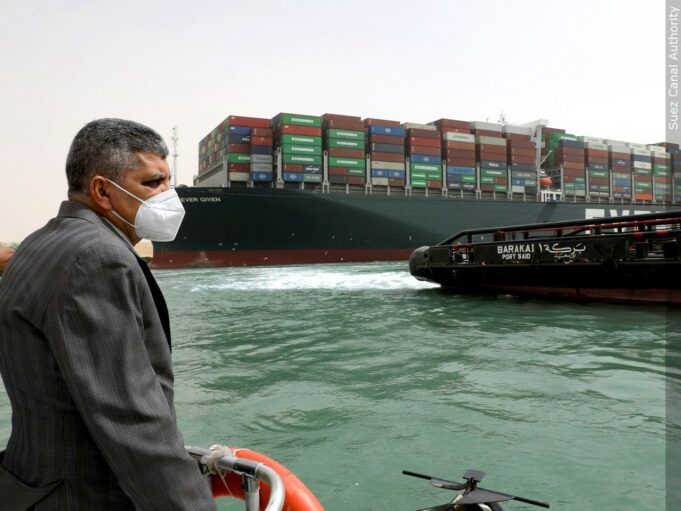CAIRO—The owners and insurers of the giant container ship that blocked the Suez Canal for nearly a week earlier this year have reached an agreement in principle over their dispute with canal authorities, representatives from both sides said June 23.
Stann Marine, the lawyers representing the vessel’s owners and insurers, and a spokeswoman for the Suez Canal Authority both confirmed the development.
Neither elaborated on what the agreement would entail, but the Suez Canal Authority said more details would be released later.
The disagreement centers on the compensation amount the Suez Canal Authority is claiming for the salvage of the vessel Ever Given, which ran aground in March, blocking the crucial waterway for six days. Specialist tugboats and dredgers eventually freed the 400-meter-long (quarter-mile-long) cargo ship carrying some $3.5 billion in cargo.
The money would cover the salvage operation, costs of stalled canal traffic, and lost transit fees for the week the Ever Given blocked the canal.
At first, the Suez Canal Authority demanded $916 million in compensation, which was later lowered to $550 million.
Since it was freed, the Panama-flagged, Japanese-owned vessel, which carries cargo between Asia and Europe, has been ordered by authorities to remain in a holding lake mid-canal, along with most of its crew, as its owner and the canal authority try to settle the compensation dispute.
In a statement, the UK Club, one insurer for the ship’s owners, the Japanese company Shoei Kisen, said it is working with other insurers and the canal authority to sign a final agreement “as soon as possible.”
“Once the formalities have been dealt with, arrangements for the release of the vessel will be made,” the statement said.
The two sides have traded blame for the vessel’s grounding, with bad weather, poor decisions on the part of canal authorities, and human and technical error all being thrown out as possible factors.
The six-day blockage disrupted global shipping. Hundreds of ships waited in place for the canal to be unblocked, while some ships were forced to take the much longer route around the Cape of Good Hope at Africa’s southern tip, requiring additional fuel and other costs.
About 10 percent of world trade flows through the canal, a pivotal source of foreign currency to Egypt. Some 19,000 vessels passed through the canal last year, according to official figures. (AP)













